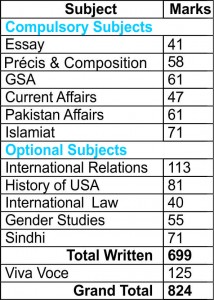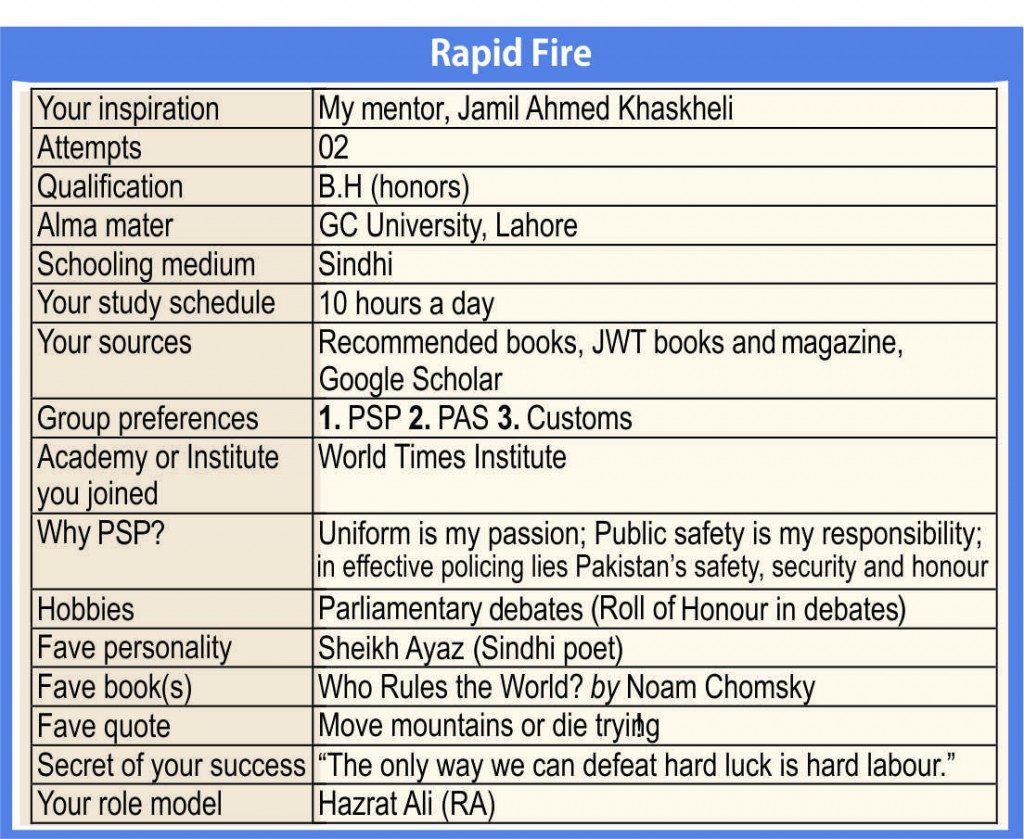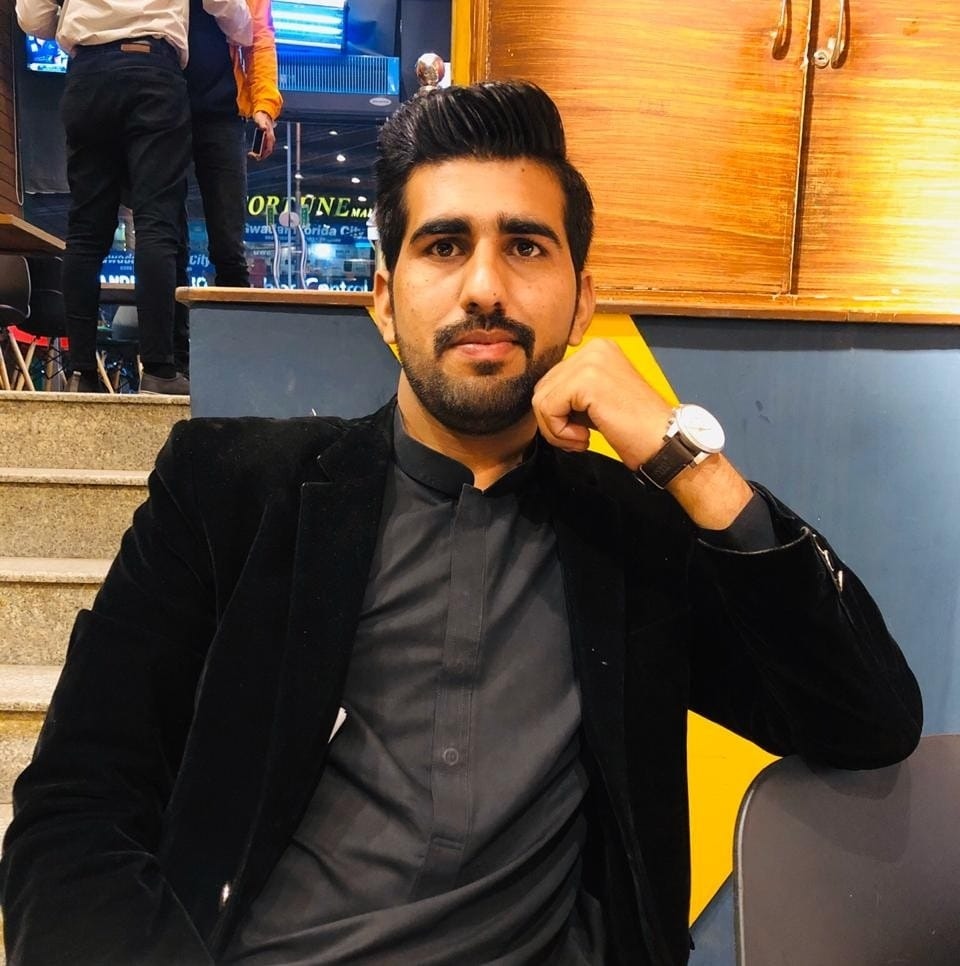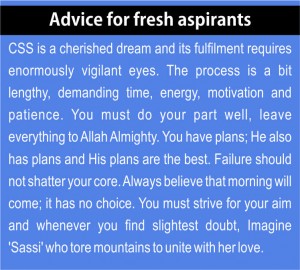In Conversation with
Muhammad Shareef (PSP) 26th in Pakistan
2nd in Sindh Rural, CSS 2019-20
Jahangir’s World Times (JWT): First of all, please tell us about your educational background?
Muhammad Shareef (MS): My educational journey started at Sohail Public School, Mahesar Wada. After winning a 5-year scholarship at Cadet College, Larkana, I qualified FSc (Pre-engineering). For graduation, I joined GC University, Lahore, which became my alma mater that transformed me from an ordinary student to a gentleman civil servant.
JWT: Since you have been allocated to Police Service of Pakistan (PSP), what was the feature of this service that attracted you most?
MS: Police is not just another department of the state; it is the face of the state and primary guarantor of life, liberty and property of the people. Few departments significantly serve public in times of crisis; fewer still run an extra mile to ease the sufferings of the left-out sections of the society; there is hardly any profession that responds first to every challenges state confronts: police do all three. 
JWT: How much helpful did you find Jahangir’s World Times (JWT) during your preparation for CSS exam?
MS: JWT magazine is not a magazine; it is the mentor one can carry all along the way. The compilation of relevant articles, interviews, analyses on key issues of national, regional and international scope make this magazine a bible for all CSS aspirants coming from different regions, ages and attempts. It would not be an exaggeration to stress that JWT is one-stop solution to all problems faced by CSS aspirants.
JWT: What, in your opinion, is the key to making a difference in written part of CSS exam?
MS: Firstly, MCQs can boost the written part and diminish chances of failure even if the subject gets an unfortunate titanic hit. Secondly, more focus on General Science and Ability is the need of the hour. The results of past three years bear testimony to the fact that Pakistan Affairs and Current Affairs have been over-prepared yet under-graded. GSA is medicine to this. Lastly, paper-attempting skills acquired through mock and individual assessments can turn the tide for you.
JWT: Generally, compulsory subjects are considered low-scoring, what was your strategy to get through these very papers?
MS: This is not always the case. Compulsory papers can yield fairly better scores if prepared for in an organized matter. To start with, Composition paper can be the scoring one if aspirants have reasonable command over grammatical skills, précis and comprehension. In 2020, this subject yielded scores as high as 90. GSA is Greek to many due to their own negligence. Prepare detailed notes first, then shorten them to one-liners and then practice answers. Islamiat is also an uphill task for many, the salvation lies in reading research papers, drawing comparison of Islamic ideas with other religions and being carrier of the soft, inclusive and to the point narrative rather than just focusing ayats and the translations that are barely explained.
JWT: How answers should be written to get maximum marks?
MS: First of all, reading all questions is the most important task; one must underline the ‘word of question’ (e.g. Discuss, describe, explain, critically evaluate, etc.) followed by identifying the burden of proof or the parts of the question. All questions must be brainstormed at one time on last page in order to find the best, the best, the better and the best series to attempt. Answer should have a brief synopsis focusing major aspects of answer. An answer should be written in 35-40 minutes with a word limit of 700-800. Introduction should be written in line with the question asked; critical analysis should highlight what is good, and criticize what is wrong based on stakeholders’ analysis. Headings should be self-explanatory with adequate explanation, not exceeding 4-6 sentences. Diagram, tables, maps, references and other charts can help in creating relative difference. Conclusion must be written as a summary of the body of the answer.
JWT: Should there be some word limit kept in mind while writing answers?
MS: Word limit can vary based on the nature of the question, time and pressure in exam room. However, all questions must be attempted in subtle balance because all carry equal marks. Moreover, aspirants should not drag answer just to fill the pages. It is far better to write 6 relevant pages than 10 pages with mixture of relevancy and irrelevancy. One must remember: ‘Brevity is the soul if wit’.
JWT: How did you structure your Essay and what was your strategy for Précis and Composition Paper?
MS: Although qualifying Essay in CSS is considered the toughest job on earth or even mission impossible, I did it thrice.
Firstly, selection of the topic is very important, followed by brainstorming thesis statement and rough outline with the help of levels of analysis. Fair outline be written in sentence form to make it self-explanatory along with cases in point. Body paragraphs must have tangible information and should stick to the agenda rather than starting a discussion within discussion. Conclusion should be in line with already discussed points and no new perspective should be introduced in the end. Correct English, right interpretation of the topic and ability to cope psychological pressure are important. Never cram an Essay; learn the art and master it, and you will play with words.
For Précis paper, I consulted past papers and teachers for evaluation.
JWT: How a new aspirant should start his/her preparation for CSS exam?
MS: A novice should plan for a 16-month preparation. English is to be covered initially, followed by Essay and composition. Prepare one subject at one time, newspaper reading and, if necessary, individual mentors/ academy should be consulted. First 10 months should be about knowledge-gathering, notes-making and MCQs preparation; next three months for revision followed by practice and assessment. Neither appear in CSS exam prematurely and fail absolutely nor appear when age-limit leaves you no choice except to ‘appear’.
My Tips:
Selection of optional subjects
Optional subjects should be selected based on these factors combined: academic background, personal interest, overlapping with other subjects and the length of syllabus. The best subject is the best prepared one. Marking trend is too uncertain to rely upon.
Notes-making
Select a topic, read it thoroughly and organize it into different headings. Standard books, CSS-specific booklets, research papers and newspaper should also be consulted to incorporate factual, descriptive and analytical information. Try to add perspective asked in past papers as well as the contemporary debate. First notes should be lengthy, followed by shorter ones or even one-liners serving the purpose of the revision.
 Jahangir's World Times First Comprehensive Magazine for students/teachers of competitive exams and general readers as well.
Jahangir's World Times First Comprehensive Magazine for students/teachers of competitive exams and general readers as well.





